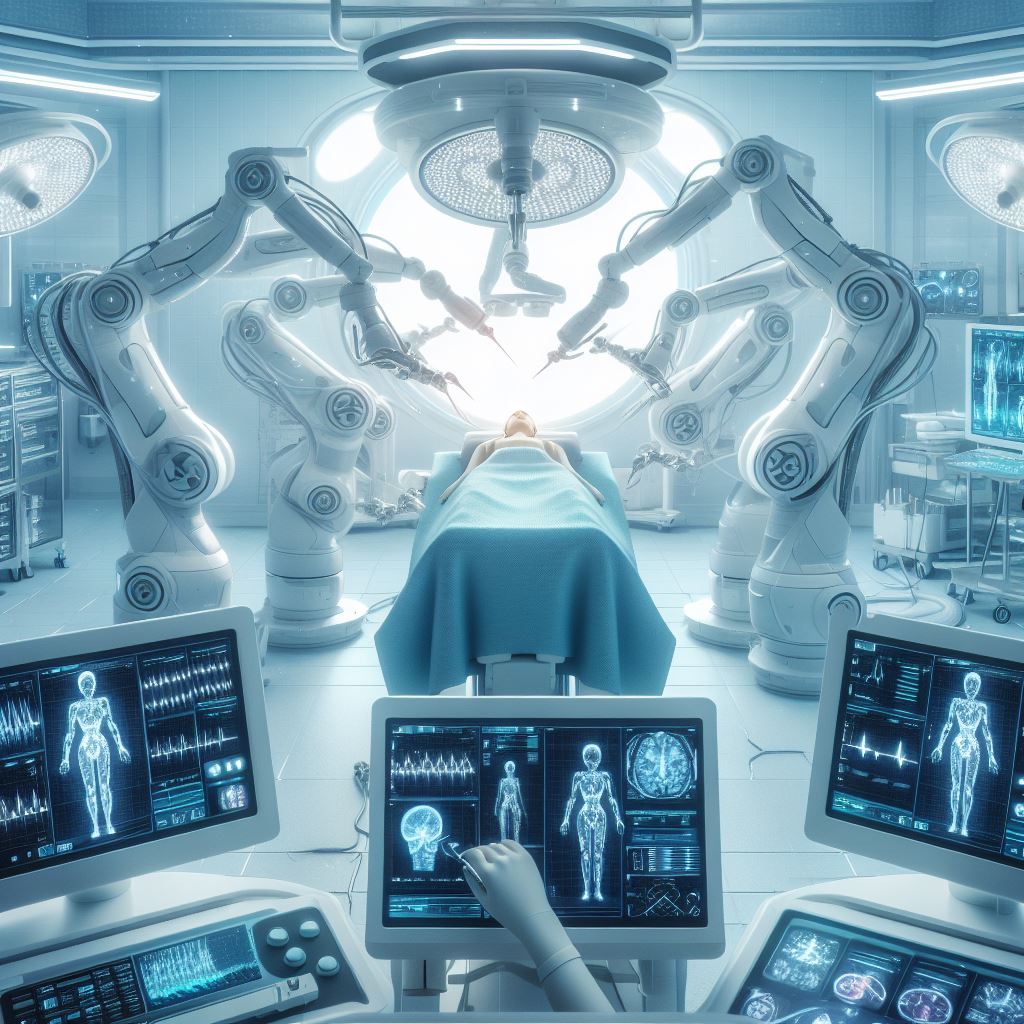Artificial Intelligence in the Operation Room: Helping Hands for a Brighter Future in Surgery
Throughout the years, it has been evident how technology has revolutionized many things in the medical field. The more common use of artificial intelligence (AI) has become a great asset to several medical professionals. A recent panel of leading surgeons discussed how artificial intelligence is transforming surgery. AI is having a major impact on all stages of surgery, from before a patient goes into surgery to after they recover. The following demonstrates some of how AI is providing patients with the best possible care:

Predicting Surgical Risks and Complications
The integration of artificial intelligence in medical data analysis has brought significant breakthroughs in predicting the likelihood of surgical complications after and during a medical procedure. By using advanced machine learning, AI technology can analyze vast amounts of patient data and generate crucial insights into the potential risks that a patient might face during the postoperative period. This information gives surgeons a deeper understanding of their patient’s needs and allows them to make more informed treatment decisions, ultimately leading to better outcomes.
Making Surgical Decisions
Artificial intelligence has the ability to offer surgeons vital information and valuable insights in real time during surgeries. In high-stress situations, AI intervenes to assist surgeons in making optimal choices, thereby ensuring that the procedure yields the best possible results. By relying on AI technology, surgeons can access enhanced decision-making capabilities and bring about greater accuracy in their procedures.
Improving surgical precision
Advanced surgical robots, powered by AI technology, have revolutionized the field of surgery. These highly developed robots are capable of executing complex procedures with precision and accuracy, surpassing the capabilities of even the most skilled human surgeons. The inclusion of AI in surgical robotics holds great promise for significantly enhancing patient outcomes. By decreasing the likelihood of errors and complications during surgical procedures, this cutting-edge technology has the potential to reduce recovery times and contribute to improved overall health outcomes for patients.
Human Medical Professionals are Still Important
Undoubtedly, AI has become a valuable asset and important tool in healthcare. It can help doctors and nurses diagnose and treat patients, and can also be used to monitor patients’ health. However, AI should not replace human medical professionals. Healthcare is not only a set of procedures, but also about the relationship between doctors, nurses, and patients. Doctors and nurses have years of experience and training that AI can’t replace. Their expertise helps make important decisions during medical procedures.
In complex cases, experienced physicians are needed to make accurate diagnoses and develop effective treatment plans. AI can provide aid with tasks, but it cannot replace the knowledge and judgment of healthcare professionals. It’s important to remember that AI is just a tool. The real work is done by doctors and nurses caring for patients daily. AI should be used to enhance the care that they provide, and not to replace it.
Conclusion
During the panel discussion, the challenges of incorporating AI technology into surgical procedures were addressed. Clear guidelines on the appropriate use of AI and the potential for legal liability were identified as areas of concern. Despite these challenges, AI is contributing to the advancement of surgery, enhancing patient care through increased safety, efficiency, and personalization.
Bibliography
Surgeons, A. C. of. (n.d.). The AI Revolution: Surgeons Share Insights on Integrating AI into Surgical Care. Www.prnewswire.com. https://www.prnewswire.com/news-releases/the-ai-revolution-surgeons-share-insights-on-integrating-ai-into-surgical-care-301970279.html
